WHAT THE PORTRAIT PHOTOGRAPH IS?
The portrait photography is the photographic modality that is in charge of capturing the essence of a person either highlighting the look, the pose or its physical qualities in general and transmitting their mood or other types of sensations. It is also used to contextualize someone in a specific scenario or explain an event through the people it affects.
Although we usually relate portrait photography to a photo of the face in the foreground, this modality also collects whole-body photographs or even with the model or model with its back to the camera.
Tips for portrait photography
I propose several tips so you can put into practice and better your ability when photographing people. It is important that you practice, either through self-portraits, friends or exchanges with models of your city. Search on Facebook exchange groups between photographers and models to find people who may be interested in working with you.
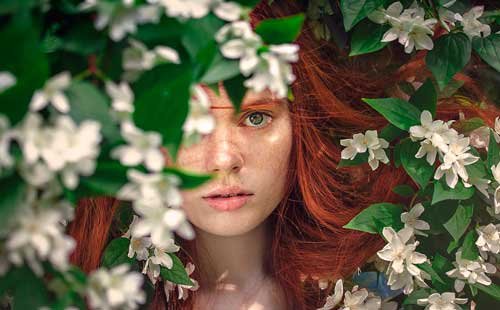
The correct exposure
If finding the right exposure is already important in any type of photography (whenever your creative needs need a "correct exposure"), in portrait photography it is especially important to measure the light that is available.
In a closed portrait in which the face occupies almost the entire frame, the texture of the skin is one of the main protagonists and if we expose more time than necessary the skin will be overexposed, destroying the texture of the forehead, cheekbones, lips , etc.
These areas are often prone to "burn" so it is advisable to monitor the light to not take a nasty surprise when editing the photo.
Try to measure the exposure on the areas where the light is reflected directly, on the highest lights and guide by the histogram of your camera, so you will make sure that both the light and dark areas have information and have not been damaged by a bad exposure
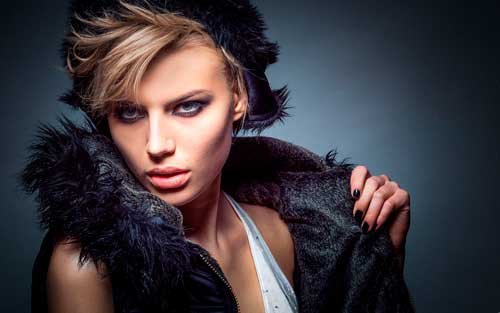
Portraits outdoors
It is important when you do outdoor portraits to choose the time of day or bring material to "soften" the light. The best moments for outdoor portraits are those near the sunset, when the light is much softer than at other intermediate times of the day.
Remember that if the light is very hard you run the risk of losing detail in the textures, the shadows will appear very exaggerated (especially in the area of the eyes) giving rise to an image with strong contrasts, not to mention the face of our model trying to go well, without glasses and with a splendid sun.
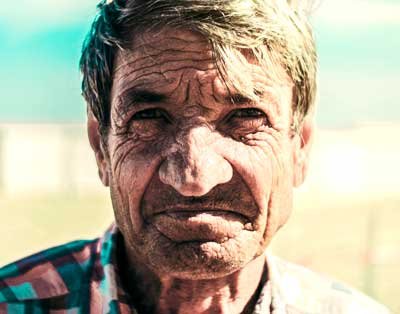
In the event that you have to do a session at daylight hours with too much light, you can instruct your model to stand with his back to the sun if possible to contour the figure.
Use light reflectors like this to illuminate the part in shade or diffusers to soften the light and make it more homogeneous.
The diaphragm opening
Choosing a larger or smaller opening in our portraits will have a direct effect on the message you want to convey or the sensation that the image will give off.
A closed opening such as a f / 22, will give us a greater depth of field and both the face and the background will appear focused (always depending on the hyperfocal).
If, on the other hand, you prefer to isolate the subject from the background, a more open diaphragm aperture such as f / 2.8 or f / 5.6 will make the subject stand out against the background.
You have to be very careful when using very open apertures, we have all dreamed of a 50mm 1.4 for this type of photography, but the depth of field when we use these apertures is very small and if we do not pay attention, areas such as the ears or The hair may be out of focus and may not be the result we are looking for.
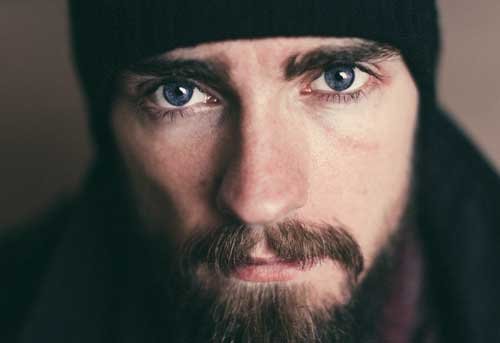
In this example you can see what I'm talking about, have you noticed how small the depth of field is?
This mostly happens with the typical objective 50mm 1.8, as is usually the one we bought after the objective of the f / 3.5-5.6 kit and we are used to that depth of field, when we change to f / 1.8 we take our hands to the head see that the focus is on the tip of the nose and the eyes are out of focus.
If you are thinking of buying a 50mm, trust me and before you go to the article in which I try to convince you that you need a 35mm lens.
Should I focus on the eyes?
Surely you've already heard about the importance that is given to the eyes in portrait photography but is it really that important?
As a general rule, a glance transmits a lot, just by looking at a person we get an idea of how it can be, how it feels, our job will be to capture the moment in which the eyes describe the model, place us within a context as it may be the background that surrounds it or differentiate it from the rest of the people that appear in the photograph.
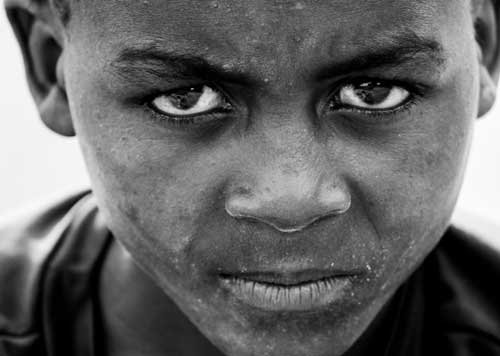
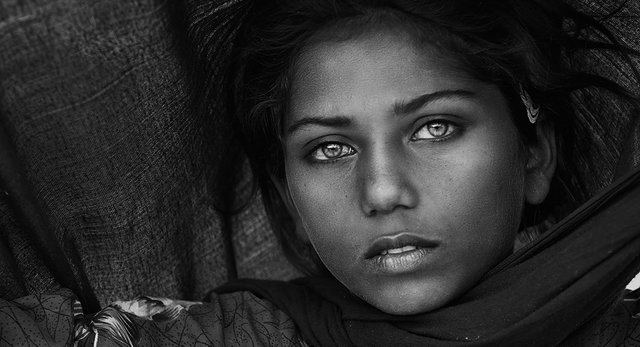
You are blacklisted by this bot for not using your own photo:
https://busy.org/@thepajaro/golden-hour-photography-photocontests
Please contact @juliank(juliank#1775) on Discord in case of a false flag
World of Photography Beta V1.0
>Learn more here<
Thank you for participating in #portraitphotography
You have earned 5.05 XP for sharing your photo!
Daily photos: 1/2
Daily comments: 0/5
Multiplier: 1.01
Server time: 23:03:42
Total XP: 69.00/100.00
Total Photos: 12
Total comments: 6
Total contest wins: 0
Follow: @photocontests
Join the Discord channel: click!
Play and win SBD: @fairlotto
Daily Steem Statistics: @dailysteemreport
Learn how to program Steem-Python applications: @steempytutorials
Developed and sponsored by: @juliank